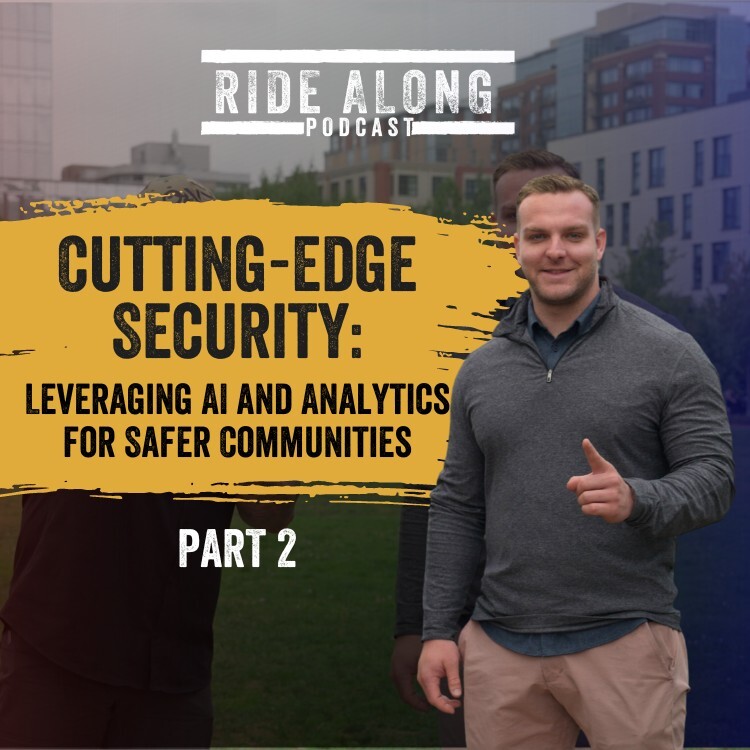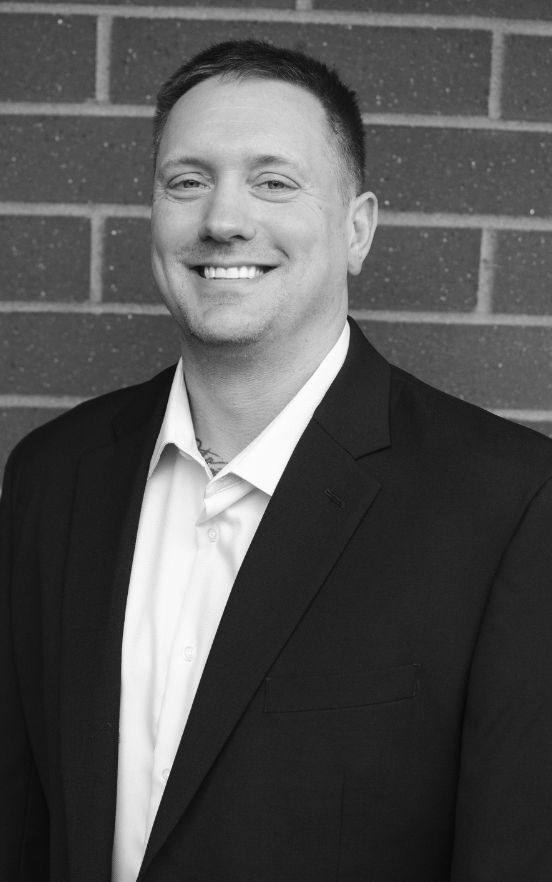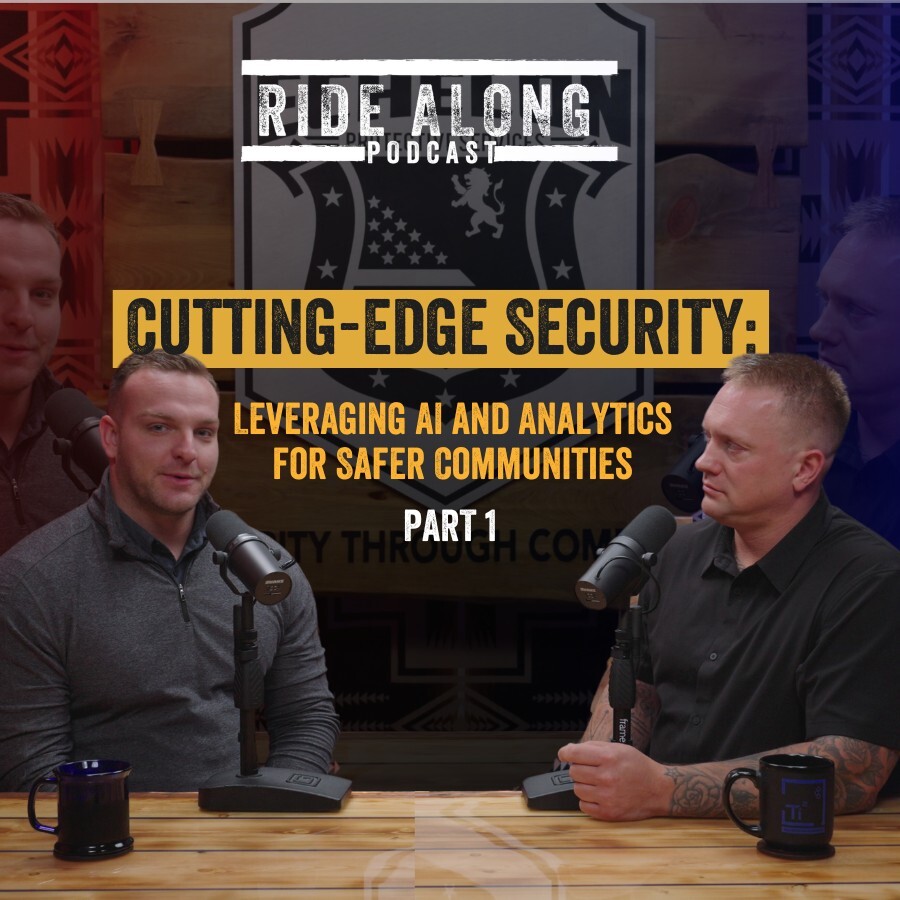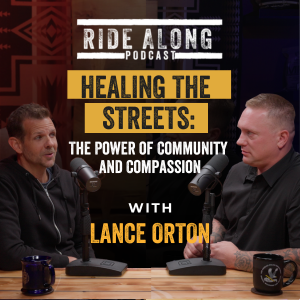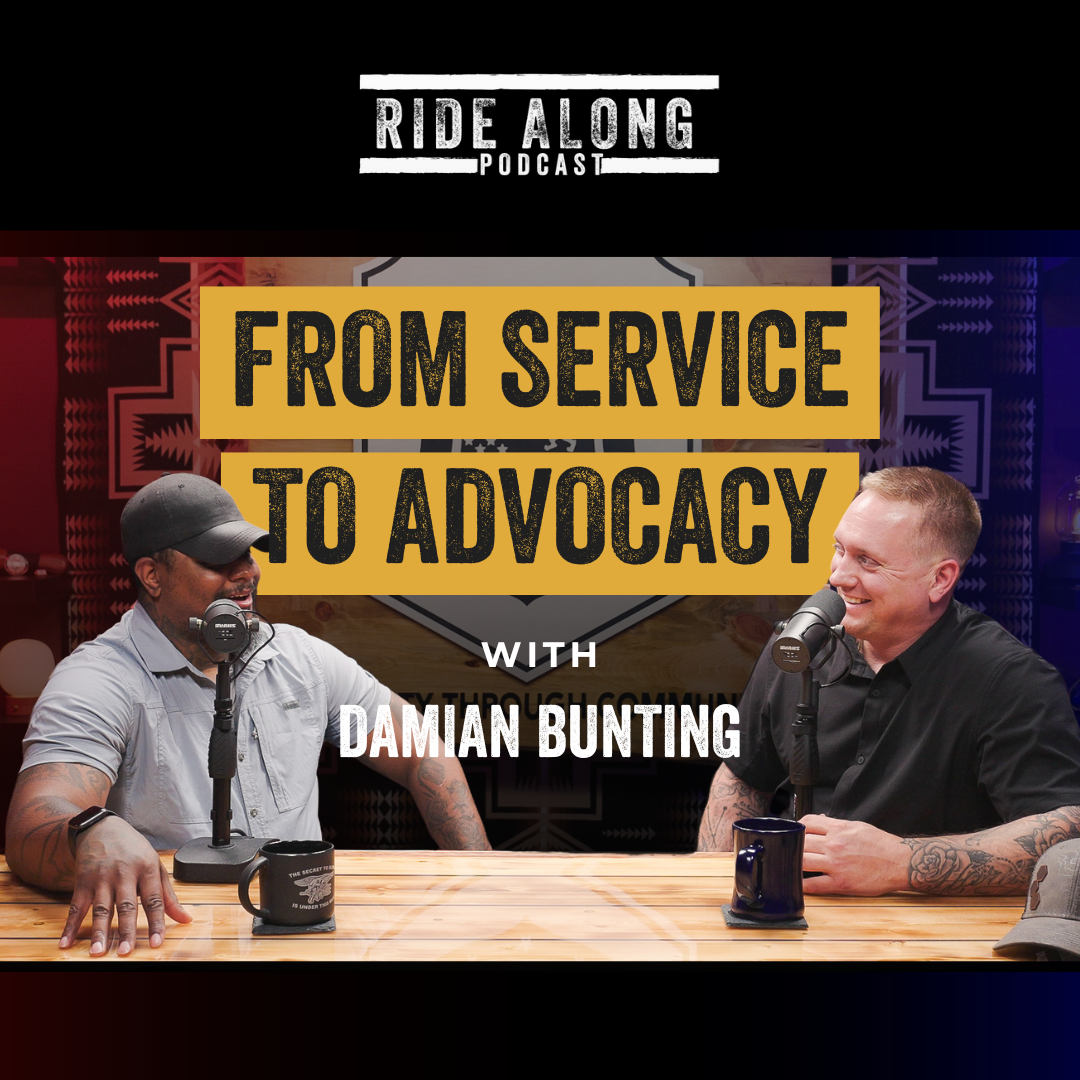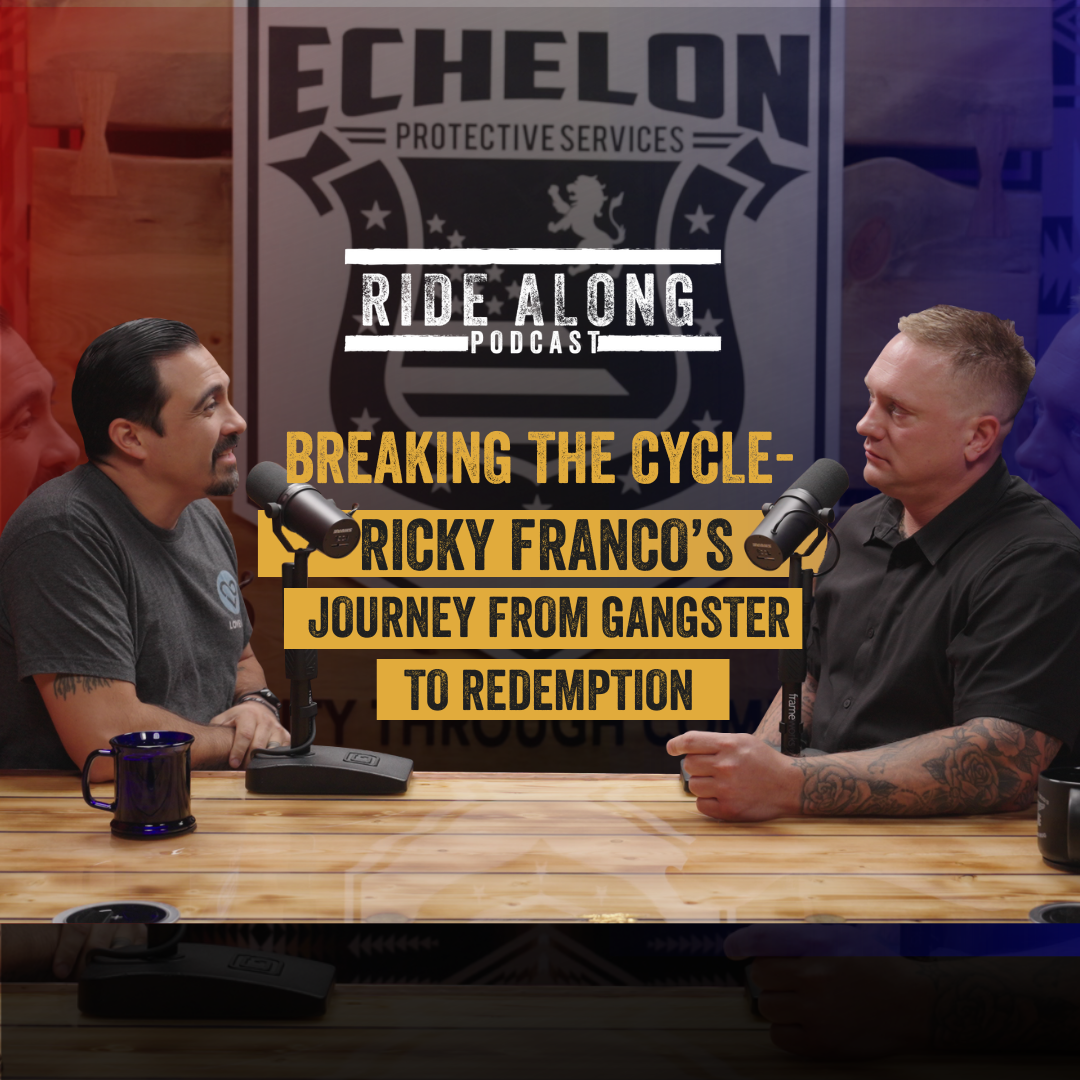Episode Transcript
[00:00:02] Speaker A: I'm Alex Stone, former military service member and law enforcement officer, now CEO of Echelon Protected Services, one of the fastest growing private security firms on the west coast. And this is ride along, where our guest and I witness firsthand the issues affecting our community.
I believe our proven method of enacting meaningful change through compassion and understanding is the best way to make our streets a safer place and truly achieve security through community.
[00:00:52] Speaker B: My name is Adam Schneider. I'm COO of Sentinel Overwatch Services. We're a technology provider. Today, I am going to be joining Alex Stone, one of my business partners in Sentinel Overwatch, on his podcast, the ride along.
[00:01:08] Speaker A: Hey, what's up, man? We're security for the building. Can you do me a huge favor and not smoke in front of the door?
Because they're going to end up calling any second, I guarantee you.
Do you need anything? We got some water.
[00:01:21] Speaker B: Otherwise I definitely would.
I carry a dog, a little water, but I don't have some wipes. Any money, man. I'm sorry.
[00:01:28] Speaker A: I really appreciate rugby. I got a couple cigarettes for you.
My name is Alex. Appreciate it, bro. What's your dog's name?
Arjuna.
That'd be legit. If anybody made cigarettes, I guarantee they'd be expensive as hell.
Awesome, man. Appreciate it. Have a good day.
We're on patrol. We're about to go to a site, and there's a guy smoking fentanyl in front of right in the doorway of one of the property owners building. So literally, someone could have walked out. I mean, the door opens out, so they actually could have just knocked him right in the head.
I mean, it's just unsafe, right? It's a fire exit, the whole deal, you know? So I talked to the guy. I was like, hey, man, like, it's nothing, nothing personal, but I need you to not be actually in the doorway. I understand that, you know, you have drugs, whatever. You can legally carry drugs, but if you cannot use them here, I really appreciate it. He had a dog with him. I gave him some water for him and his dog and same thing for his buddy. So neither one of them really wanted anything else. They were both like, they had just used. Actually, it both seemed pretty high.
[00:02:42] Speaker B: And, you know, to this point is that we stumbled across him just on our way to another site. Right. Had we had sentinel Overwatch deployed on this property, correct.
[00:02:51] Speaker A: Yes.
[00:02:51] Speaker B: We wouldn't have had to seen this in order to intervene.
[00:02:55] Speaker A: Right.
[00:02:55] Speaker B: The technology would drive response from an officer to come intervene and assist, get him dog food, water.
[00:03:01] Speaker A: Exactly.
[00:03:02] Speaker B: So that's just one of the powers of what sentinel can do. And so, yeah, I'm glad we were able to intervene.
[00:03:10] Speaker A: That's good.
[00:03:10] Speaker B: Today. So we are headed over to the property that has deployed. So's on it.
[00:03:17] Speaker A: Yep. We're gonna not mention the client. It's a national retail chain, national retailer. So it's a larger shop.
And I guess there's a labor.
Labor Day strike, possibly teachers.
[00:03:30] Speaker B: I don't know.
[00:03:31] Speaker A: I know they're striking area right now.
So we're pulling up to the retail location again. You know, retail theft is a big deal, and so we're here to show just what so's has the capability of doing for the client.
[00:03:49] Speaker B: We just passed the property that's running ours, that's running our software, and there was actually a guy out front loitering, and I just received the notification.
[00:03:57] Speaker A: Oh, nice. That's hilarious. So we were driving by the property. Someone leaned up against the building and started loitering in an area where we wouldn't want loitering to occur.
And it just sent you a notification for it? Mm hmm.
[00:04:10] Speaker B: Yeah. So I guess we'll. We'll see. We should have officer response to that incident as well as us. Once we find some parking, we'll be able to go over and intervene and interact with them.
Disgusting.
[00:04:32] Speaker A: Yeah. The Joyce hotel is a fucking nightmare. So we just got out. We're about to check up on our property. The property right now is actually not ours, and it's one of the worst in the area.
Everyone always complains about this property. There's not much we can do about it. We have no authority here.
Hey.
Good yourself.
Beautiful day, isn't it? Finally cooling off, you know, so we. By the time we got the notification, we actually were able to come here to the retail location. We jumped out of the vehicle, walked, what, 15 seconds?
[00:05:06] Speaker B: Yeah.
[00:05:07] Speaker A: And the guard had already shown up. He's one of our top guards. He didn't want to be on camera because he's running behind on schedule. And here we have. This is an extremely dense location. We probably have, like, 80 properties we have to hit. They're all next to each other. But we want to make sure that everyone sees us. So it's real important that the guards always staying on time. So he was like, hey, man, I'd love to, but I actually need to, like, get my pace up a little bit. I tempo, so.
[00:05:32] Speaker B: Yeah, great. Great response time. You know, we expect three to six minutes for response. I think it was well under that. This is a very high trafficked area. It's very dense. Like Alex was saying, get a lot of people loitering. As you can see, this door has been fully boarded up because of so many break ins. So our technology has really curved that, you know, being able to get a guard on site within a couple of minutes is a big deterrent for people who are trying to break into property. So, really cool. It's. Glad we can see it in action.
[00:06:01] Speaker A: Awesome. Cool, man. Well, let's go patrol and see what happens. All right, well, I guess I should mention, it's probably important to mention that the guard came and the individual that was loitering has mental health issues and actually wasn't even really coherent. He did gather his stuff and he believed himself to be a part of the protest. But the person that was here, we've known him for years, and unfortunately, he's suffering from mental health. And in Portland, it's very unlikely that you're going to get a police officer to conduct a Poh or to put someone in a custodial hold for mental health reasons. And so you just got a lot of people with mental health issues suffering from homelessness on the streets. So that's what's kind of going on. All right, cool.
Crazy.
[00:06:47] Speaker B: Well, if you ever wanted to see the technology work firsthand, I mean, there you go. It can't be better than that.
[00:06:53] Speaker A: And who knew? I mean, printle kind of was probably there the whole time we were in the van, so. Yeah, probably at least a minute or two.
[00:07:00] Speaker B: Yeah.
[00:07:00] Speaker A: So probably a four minute response. That's great. I would think. Cause the guy was basically already leaving, had gathered all of his belongings.
Yeah.
[00:07:07] Speaker B: That's pretty amazing, man.
[00:07:09] Speaker A: Very impressive, man. Seriously, like, probably three and a half, four minute response.
The guard got it on their phone. That notification was already there.
Super impressive, man. I mean, this is exactly why these small to medium size, these 50,000 security companies across America need this technology, because it's going to make your. The time that the guard is spending patrolling, it's going to be much more effective. Right. You're going to have an overall better security product, you're going to have a better margin per client, per contract, and. And you're going to deliver the right results.
[00:07:52] Speaker B: Yeah, absolutely amazing. Yep.
[00:07:54] Speaker A: Awesome. All right, well, let's patrol and see what happens.
[00:07:57] Speaker B: Thanks.
So we are headed to our second property in downtown Portland that is running Sentinel Overwatch. It is a ten story parking garage. And here we're actually running some more advanced use case analytics for car prowling and catalytic converter theft. We are still running a lot of loitering analytics and their stairwells, they've had a lot of drug use in stairwells as well as prostitution. So once we get there, you can kind of see how these things can become pretty big issues.
[00:08:37] Speaker A: I gotta see if that guy's alive.
Be ready to get arcane out. Hey, my man, you okay?
You okay, bro? You are almost in the street.
I'm afraid you're overdosing, bro.
You need a cigarette? You need some water? I got water here. I got cigarettes. Cigarettes.
[00:09:01] Speaker B: Are you smoking some fentanyl today, bro?
Can you sit up for a second and drink some water?
[00:09:12] Speaker A: Your. Your head is in the street. Yeah.
[00:09:15] Speaker B: You're not looking too good, bro.
[00:09:28] Speaker A: Hey, my man. Hey.
Hey, bro, just. Can you sit up for me?
You got an arcan? Yeah.
[00:09:42] Speaker B: Okay, just sit up then, for a second, man. We're just trying to make sure you're all right. You don't look all right.
[00:09:47] Speaker A: Do you want to die?
No, dude. No. We're considering. We're concerned that you're overdosing, bro.
You're just taking a nap.
You're not. This is a nap for you.
Yeah. You're just napping, trying to sleep. Okay, well, you're sleeping halfway off a curb into a snow street.
See what I'm saying? You're actually in a bicycle lane.
You're off a curb, bro. You're in a bicycle lane.
What's your name?
Could you scoot over like, six inches so that way I know you're not going to fall in the lane?
Stay on the sidewalk? Is that possible? Could you do that?
I mean, he's talking enough to where I think that he's not gonna overdose, but. Yeah. Fucking really sad, dude. Yeah. All right, man, we're gonna leave a bottle of water here for you. Okay, but I want you to know, man, like, someone could come and hit you. Okay.
I'll call Corey and have Cory follow up.
Yeah, obviously this isn't supposed to be here.
[00:11:42] Speaker B: Yeah, it's from the Benson.
[00:11:43] Speaker A: It's on the Benson Hotel.
So.
So we just jumped out. We're just driving. We're just trying to get to our next location.
You know, we're not really trying to patrol today. This really is more about a technology day and how technology can benefit guards and guarding companies, security companies, and just overall protection. And unfortunately, we had this guy. I don't think he's going to overdose.
He's able to have conversations.
He told me he's just tired. The conversation alone. His ability to converse allows me to believe that he's not in that threatening zone of overdose. Possible overdose. So we're gonna let him be there. We're gonna let him rest it off, come back and check up on him at a later date and time.
So, obviously, we had to stop because there was a possible medical emergency. Right. Someone's laying in the middle of the road. But you were saying we're headed to this place. It's unique because it's a twelve story garage.
[00:12:46] Speaker B: It's a ten story parking garage.
[00:12:47] Speaker A: Ten story parking garage. Very unique. Had a lot of high theft, a lot of different use cases.
[00:12:52] Speaker B: So, yeah, we're running some of our more advanced video analytic solutions here, like car prowling, as well as catalytic converter theft.
[00:13:01] Speaker A: So, at this location, we actually had an attempt at kidnapping of a seven year old.
And, you know, and then also just frequent, frequent break ins.
So, again, hi. Traffic, high crime.
And we want to see how technology can help change that.
[00:13:23] Speaker B: So, we don't have much exterior cameras on this property. It's one thing that they're looking to add to combat kind of the issue that we're seeing right here, firsthand.
Inside the parking garage, we've got over 100 cameras running our car prowling, as well as our behavioral analytics, so we can get early detection on potential thefts that are taking place. Prostitution, drug dealing, which I think is why it's so dense out here, because they're not getting intervened by these officers that are notified by our system constantly.
So, we'll point out some of the areas that we're targeting inside the parking garage.
But a lot of the activity that stems on the interior is from this out here.
[00:14:32] Speaker A: So they added this fence, thinking they would save the windows. And I think the fence is actually causing more issues.
[00:14:37] Speaker B: Yeah, I mean, generally, the fence shows that it's vacant. Right. And it brings a lot more attention to people.
So, this is one of our parking spots, our parking lots that we've deployed on. You know, we've got a lot of issues in these little alcoves here.
[00:14:55] Speaker A: Hey. No, I'm Alex. I own echelon, the security company.
No, this is Adam. He's one of the owners of the tech company that does the cameras. Okay. So we're here just doing an audit today. Nice. Is that all right? Yeah. Anyone coming in today? Anything odd? Other than this outside area?
No. You mean odd happening here? Yeah, no one coming inside. Okay, cool. Yeah, no, you're good? Okay, cool. All right, we'll be walking around. Sounds good. Thanks, bro. Cool.
[00:15:25] Speaker B: So, I mean, as you saw outside, right, that really dense, dense population of the houseless community. What happens is, at night, they start trickling in from the street, looking for shelter, looking for places to sleep.
This was one of our.
[00:15:42] Speaker A: Yeah.
[00:15:42] Speaker B: Using the restroom, defecating. This is an area where we were having a ton of issues. At night, they would barricade themselves in these alcoves and the stairwells, as Alex pointed out earlier, when they hang garments, indicating that, you know, that they're working. We've stopped a lot of sex crimes happening in stairwells. You'll see panties hanging on the door. Well, the door handle. So this is just one of the areas we've deployed our software, and we've had a lot of success with kind of mitigating that and driving down the criminal activity, especially after hours. So we can check one of these stairwells.
We encourage them to lock the. The entrance of the stairwell.
That's good.
And then.
Yeah, see, so this is locked now. You can see there's food and stuff left over in there. There's a crack on the window if someone's trying to break it to get in.
Again, our software gets early detection on any tampering or behavior analytics that we'll send to the officer so we can intervene before this door's fully broken into.
[00:16:52] Speaker A: So someone comes up and they're trying to mess with the astral guard and try to pick a lock. We would pick up on that.
[00:16:58] Speaker B: Yeah, exactly. So, yeah, just had a lot of success here. It's nice to see that at least the inside of the garage is cleaned up pretty well.
[00:17:06] Speaker A: Yep. I just contacted the loving one another team and asked them to spend a couple hours at the front of this property today just because it seems so inundated. You know, we. Sounds like there's almost some people fighting over drugs when we pulled up, and so before we get any security response, I'd really like to give people the opportunity to get into a shelter, be deescalated, feel important, you know, like they're people, not just a security problem, so.
[00:17:32] Speaker B: Mm hmm.
[00:18:07] Speaker A: There's also a 24 hours food market right here that's open. So they're gonna get money, and when they need stuff they need, they just go in here and buy it. That makes sense.
[00:18:17] Speaker B: Well, I mean, like, to Alex's point, right, the mini mart allows these. These guys that have subsidized programs like food stamps. They'll go in, they'll buy the drug dealers drinks or food, and then they'll use that as a trading piece to get their. To get their drugs. So, generally, where there's a 24 hours market. You'll see large groups like this of a mix between dealers and users.
[00:18:41] Speaker A: We're adding cameras to the exterior of this property.
You know, just across the street, there's a guy sleeping. He could be overdosing right there. You know what I mean? Like, and people just drive and walk by and no one cares. No one's checking on the guy. Even these people over here who probably sold him the fentanyl that he's overdosing on. The guy right here, that's like the worst position you could be in.
[00:19:01] Speaker B: Mm hmm.
[00:19:02] Speaker A: To fixate.
[00:19:03] Speaker B: You can see his foil there with.
[00:19:06] Speaker A: And it's like, it's just frustrating, you know, there's. I don't want to see one police officer come by.
Like, is it littering a crime?
[00:19:17] Speaker B: Well, even open usage. Right. They're supposed to be getting ticketed.
[00:19:20] Speaker A: Yeah.
[00:19:21] Speaker B: When. When they passed.
[00:19:22] Speaker A: Even having a tent. You're not supposed to have a tent on a sidewalk during the day. It's actually a violation. And a second warning is actually a misdemeanor now. And there's nothing. Nothing's going on here. And it's like, on some level, it's not okay to let people die on the street.
It's just not okay. Like, we have to get beyond the idea that extreme forms of liberty are somehow better for society.
Like, children have to go to school or they are their truant. Right.
You know, we all have to follow some sort of guidelines about health and safety. You can't dance in the middle of the street. There's cars there. Right? Like, there's. There's basic rules in society. And, like, letting people use heavy narcotics that lead to death on some level, like, you have to say no.
It doesn't mean people need to go to prison. It doesn't mean that we incarcerate everybody in America because they smoked pot one time when they were twelve. Right. But on some level, I mean, gosh, the madness has to be stopped, right?
[00:20:42] Speaker B: Yeah, absolutely. It's. It's not safe for them. It's not safe for us. It's not safe for our kids.
[00:20:48] Speaker A: No, it's not.
[00:20:50] Speaker B: This is nice, right? This individual just stopped with the bike. Check on that guy. He just set down a sprite, you know, gave him a sprite, making sure, like, hey, you're okay. You know? So there is some level of companionship on the streets from. From the houseless people to each other. But, yeah, it's a. It's tough to see. It's tough to watch.
I think we can head over to one of the areas that we've deployed sentinel within the community, a couple parks we had a lot of issues with, a lot of loitering has been cleaned up quite a bit.
[00:21:22] Speaker A: Now we don't have time to stay. I was gonna try to wait for Spencer and Leif. Cause they're both on today to show up and just talk to the people, you know, but we don't have time. We're gonna go do our thing.
In a city of problems, this is only one. You know what I mean?
But at the end of the day, this is what breaks my heart, really. Like, not only is there human suffering and human tragedy here, but it's an environmental crime. The level of pollution that is occurring because of the policies in place, it's like, oh, there he goes right there. So Loa's just showing up right now.
I mean, it's. It's horrific. The level of pollution.
[00:22:14] Speaker B: It'S very unsanitary.
[00:22:15] Speaker A: It is. I mean, there's fentanyl. Literally, I mean, there's hundreds of pieces of foil on the ground with fentanyl on it.
Just in one block, just a dog. A dog can sniff it and eat it and die. I mean, just in one block, you have 100 pieces of foil on the ground, you know, and, yeah, this is. It's really sad.
Awesome. So we're here at Fields park in the Pearl district, downtown Portland. We're here because, you know, this is kind of iconic, and this is really ground zero for change. We're working currently with a nonprofit organization in the Pearl District to kind of transform Portland. Why don't you tell us about the technological component of that? Yeah.
[00:23:08] Speaker B: So we're looking at deploying Sentinel Overwatch across 16 blocks, essentially trying to work to a smarter community where we can bridge our technology and provide a safety net across multiple blocks opposed to just one specific property.
[00:23:23] Speaker A: Yeah. So you came out with us today. You know what the future is. You've seen us on the ride along. You know, there's a lot of hard things that we're dealing with here in Portland. We're trying to make a difference. Every day matters. We appreciate you joining us today. We'll catch you next time. We got to cut it a little bit short because it's raining.
Check you out next time on the ride along. Bye.
